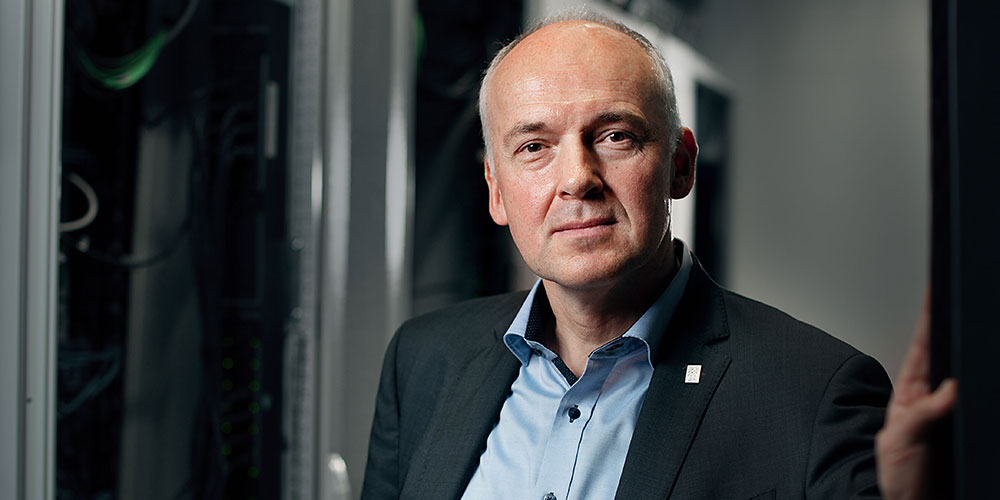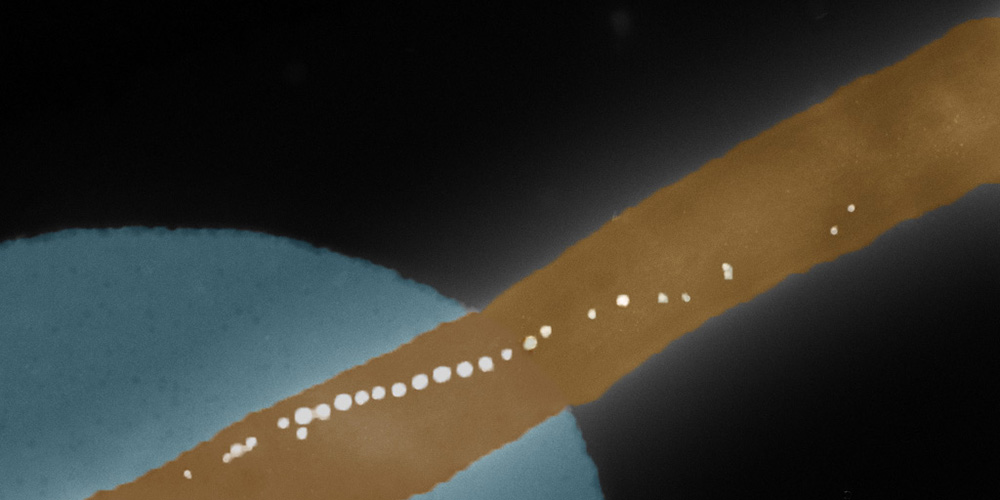“Two approved NCCR projects in Basel are setting scientific priorities with high societal relevance”
In the call for proposals for National Centers of Competence in Research (NCCRs), the University of Basel put forward two projects – and both have been given the green light. The Biozentrum and the Department of Physics are the leading houses for these major initiatives. Vice President Torsten Schwede talks about the preparations that led to this successful outcome, and about the long-term goals of the two projects.
16 December 2019
Mr. Schwede, the federal government approved six National Centers of Competence in Research today. This includes two in Basel, which will bring in CHF 34 million in funding over the next four years. How was this achieved?
The fact that two of our projects will be backed is due to the scientific excellence of our researchers. The projects and their management teams were selected as part of a competitive internal procedure carried out by the University for the call for proposals in 2017. During the course of this evaluation, accompanied by the research committee, the two most scientifically promising and socially relevant projects were selected. The President’s Board then helped the researchers with specific aspects of their applications. A total of 54 projects were submitted in this round and assessed by the Swiss National Science Foundation.
Both projects are set to run for 12 years. What will be achieved in this time?
They have some very specific objectives. The NCCR “AntiResist” is aimed at discovering new mechanisms of antibiotic action in order to tackle one of the biggest global challenges in the health sector. The close collaboration between basic research, clinical research at university hospitals, and industrial partners will enable the development of realistic and thus meaningful models for bacterial infections. “AntiResist”, an interdisciplinary center for the development of new strategies in the fight against antibiotic-resistant bacteria, will be established at the University of Basel’s Biozentrum under the direction of Christoph Dehio and in collaboration with partners at the university hospitals of Basel and Zurich, ETH Zurich, EPFL, the University of Lausanne and Ben-Gurion University.
And what are the objectives of the NCCR “SPIN”?
According to the laws of physics, quantum computers are the most powerful computers imaginable. Much of the technology used in quantum computers in the past has been based on superconducting circuits, nuclear magnetic resonance or ion traps, and thus is not suitable for the size and scale that would be required for a functional and viable quantum computer. “SPIN” aims to develop such a quantum computer on the basis of silicon semiconductors, a technology that has already demonstrated its scalability in conventional computers. The research groups in the Department of Physics, headed by Richard Warburton and Daniel Loss, are pursuing some very ambitious goals together with their partners at ETH Zurich and EPFL. Since it is very difficult to produce reproducible and scalable qubits on silicon-based semiconductors, this project needs a strong industrial partner. Our long-term work with IBM Research – Zurich as an industry-based research partner has proved very valuable here, as it has given us an internationally unique opportunity to develop prototypes and practical, applicable technology.
The University of Basel presented its Strategy 2022-2030 in the fall. How do the new NCCRs fit in with it?
These projects pursue our strategic goal of further strengthening excellent research clusters. Both departments responsible for the NCCRs have developed their research priorities with specific long-term goals in mind. For example, the Biozentrum has systematically established a focal area in infection biology over many years. The right research groups have come together here and collaboration with University Hospital Basel has been intensified in order to develop the critical mass of knowledge, expertise and technology required for an effective NCCR. The Department of Physics also has a track record of success: over the years, it has built up a world-renowned research cluster in the field of quantum physics and nanotechnology. This is also reflected in the ability to attract competitive external funding at both national and European level. The two NCCR awards are the culmination of long-term strategic development.
You mentioned the societal relevance of the two projects. How will the projects add value to the Basel region and Switzerland?
The strength of these two NCCRs lies in the fact that they conduct coordinated cutting-edge research to address highly relevant issues that will enable our society to take further steps into the future. The NCCR “AntiResist” will enable us to create the scientific conditions for the development of urgently needed antibiotics, strengthen an important life sciences research location for our region, and develop innovative technology for biomedical research. The Center for Quantum Computing in Switzerland will form a globally unique cluster of expertise in a technology that will be key to the future of digitalization. The two centers will thus contribute to assuming a leading international scientific and technological role, and help to educate and train highly qualified young scientists. Both are important for ensuring that Switzerland remains competitive in the long term.


